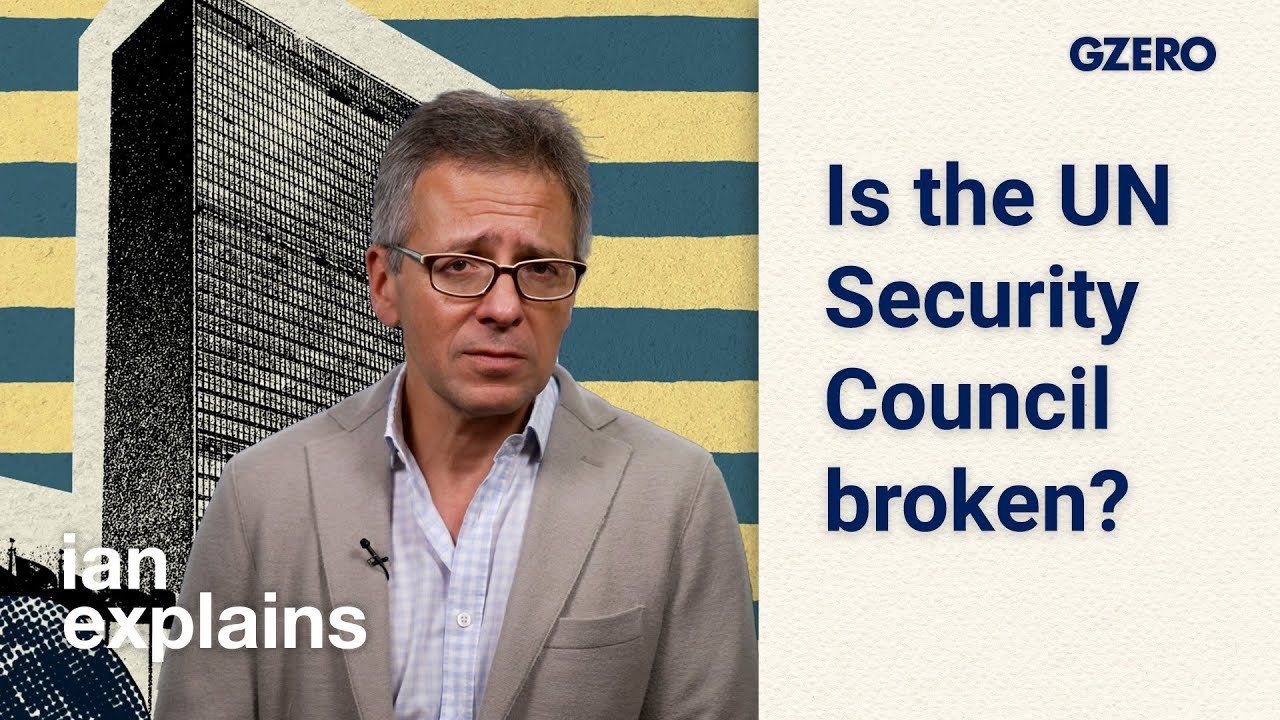Ian Explains
Ian Explains: Why Russia has a permanent seat on the UN Security Council

Ian Explains: Why Russia has a permanent seat on the UN Security Council | GZERO World

Why does Russia have a permanent seat on the United Nations Security Council?
On August 1, the United States will take over the Security Council presidency and it has a lot of major issues on the agenda, including food security, human rights, and addressing ongoing humanitarian crises in Haiti and Sudan.
But with Russia a permanent, veto-wielding member of the Council, the chances of any major resolutions the United States proposes actually passing are pretty slim, Ian Bremmer explains on GZERO World.
To understand why Russia has a permanent seat, you have to go back to the creation of the UN in 1945. The winners of World War II–the Americans and the allies–built the UN, including the Security Council. The five permanent members? They’re the WWII winners: the US, UK, France, China, and the Soviet Union.
By 1948, allies had quickly turned to adversaries as the Iron Curtain went up. But it was too late–the Security Council was created, enshrined, and fundamentally broken, all within three years.
Eighty years after its creation, it’s clear the Council no longer reflects the current reality. Veto power in the hands of geopolitical rivals keeps it from passing meaningful resolutions, and there are no countries from Latin America, Africa, or the Caribbean with permanent seats.
“A Security Council that retains the power of the veto in the hands of a few will still lead us to war,” said Barbados Prime Minister during the 2022 UN General Assembly.
There’s no question that we need a more effective and inclusive body to protect international peace in the modern era. But can the UN’s 193 member states put aside their differences to create it?
Watch Ian Explains for the full breakdown, and for more on the US, watch GZERO World with Ian Bremmer on US public television and at gzeromedia.com/gzeroworld.
For many in Iran, it’s a waiting game for how long Ayatollah Khamenei has left to live.
In a 30-minute call on Thursday, President Donald Trump reportedly told Ukrainian President Volodymyr Zelensky he wants to end the war with Russia as soon as possible — aiming for a deal by summer, but ideally within weeks.
Former British ambassador to the U.S. Peter Mandelson leaves his residence after he was released following his arrest by London police on Monday on suspicion of misconduct in public office, following the release of U.S. Justice Department files linked to the late financier and convicted sex offender Jeffrey Epstein, in London, Britain, February 26, 2026.
The ghost of Jeffrey Epstein continues to haunt the world.
Think you know what's going on around the world? Here's your chance to prove it.